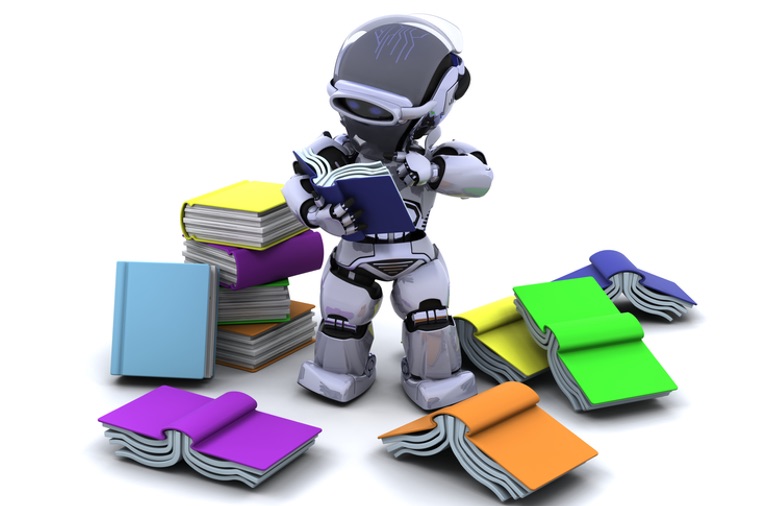
Artificial intelligence (AI) has become increasingly popular in recent years, with companies from all industries investing in the technology. But can AI create original content?
AI can create content that is both original and engaging. This is done through Natural Language Processing (NLP), which allows AI to understand and interpret language like a human would. AI can be programmed to recognise keywords, phrases, and punctuation and use them to generate content.
In this blog post, we will explore the potential of AI content creation and how it can be used to create original content.
We will cover everything from the basics of AI content creation to how AI algorithms and machine learning can help automate content creation.
We will even touch on the potential benefits of using AI for original content marketing.
By the end of this post, you should have a good understanding of the possibilities of AI in content creation.
Table of Contents
What Is Artificial Intelligence Content Creation?
AI has the potential to revolutionise the way we create content. This technology can create everything from articles and videos to customer service responses. However, before AI can be effectively used in the workplace, it must be understood how it works.
This section will explore different AI content creation tools and discuss their advantages and disadvantages. We’ll also discuss how AI can improve the quality of content created and its implications for the future of work.
At its core, AI content creation is all about using algorithms to generate new content. Many AI content creation tools are available today, each with advantages and disadvantages. Some popular options include natural language processing(NLP), machine learning, and deep learning algorithms.
NLP is a widely used technique that allows computers to understand human language similarly to humans. Using NLP techniques, AI can automatically generate article titles, headings, and other text that helps clarify and organise information. NLP can also be used to create descriptions for products or services that are accurate and engaging for customers.
Machine learning is another popular AI content generation tool type because it enables machines to learn from data without being explicitly programmed. With machine learning algorithms, AI can automatically develop article titles based on content that has been generated before.
This means that machine learning algorithms don’t need specific instructions or examples. They learn from data how to produce high-quality content on their own!
Deep learning is an even more advanced form of machine learning that uses multiple layers of neural networks to improve performance overall. Deep learning is currently used most often by companies looking for advanced capabilities such as facial recognition or natural language understanding.
With deep learning-enabled intelligent software, agents will better interact with people over time. For example, Amazon’s Echo personal assistant uses deep learning technology.
Best practices for using different AI content creation techniques vary depending on what type of information you’re trying to create: videos typically require more editing than written articles; photos may need more processing time than text-based articles, etcetera.
However, some general best practices will help ensure your results are effective and meet your goals: start with realistic expectations about what artificial intelligence can achieve, use measurements like engagement rates or clickthroughs as feedback indicators, and continuously adapt your approach based on results.
How Can AI Be Used to Create Content?
There’s no doubt that content is one of the most important aspects of a website or blog. Not only does it need to be interesting, but it also needs to be well-written and optimised for a specific audience.
However, with the growing use of AI technology, this isn’t always as difficult as it might seem. AI can be used to create content in a variety of ways that are both interesting and useful.
For example, AI can be used to generate blog posts that are well-organised and easy to read. It can also understand complex concepts and convert them into a coherent text that is easy for readers to understand.
Additionally, AI technology can create optimised content for different audiences, such as personal blogs or websites geared towards business professionals. This allows you to create valuable and relevant content for your audience, which will help you attract more traffic and customers.
Can AI Algorithms and Machine Learning Automate Content Creation?
Have you ever wondered if content creation could be automated? Thanks to AI algorithms and machine learning advances, the answer is a resounding “yes”! With AI-driven technology, content can be quickly and reliably generated with unprecedented accuracy.
The technology leverages state-of-the-art deep learning systems to create natural language processing models that can recognise patterns in text and generate high-quality output. Plus, it’s easy to use and can be tailored to match almost any written style.
So whether you’re looking for blog posts, articles, press releases, or other content, AI can help you get it done faster and more accurately than ever!
How Can AI Help Improve Creative SEO?
Search engine optimization (SEO) is a critical aspect of online marketing, and using AI-generated content can significantly impact your SEO outcomes. Creating automatically generated content based on search engine keyword data can improve your rankings faster than ever.
Moreover, by using AI to create unique and exciting content, you can attract more web visitors looking for quality content.
However, there are some things to remember when creating AI-powered content. First, ensure that your information is relevant to your target audience. Otherwise, your website or blog could be penalised by search engines.
Additionally, be sure to optimise your SEO efforts so that the generated content is indexed correctly by search engines.
Finally, measure and track the success of your AI-powered campaigns so that you can continue improving as needed.
Many tools available today allow you to create successful AI-powered content without any prior experience or knowledge of SEO.
By taking advantage of these tools and following best practices for integrating AI into SEO campaigns, you can achieve impressive results for your website or blog quickly and easily!
Challenges to Creating Original AI Content
One of the significant challenges to creating original content with AI is the complexity and diversity of human language. Natural language processing (NLP) technology has been used in text generation for years. Still, due to its limited understanding of human language, it often fails to produce content that matches natural human writing.
An AI tool may be able to generate basic sentences with a few words, but it cannot capture the nuances of meaning and emotion that make up effective communication from a human writer. This can lead to poorly written output or even nonsensical phrases. In other words, it’s not perfect!
Another challenge is generating content that is unique and engaging. Even if an AI system can generate coherent sentences, it may still be unable to develop original ideas or craft compelling stories.
Moreover, since most AI models rely on large datasets for training, they tend to produce similar outputs as other models, making it difficult for them to stand out.
Finally, there is also a lack of control over how much creativity an AI system will add when generating content. This could lead to unpredictable results, which might not meet user expectations or adhere closely enough to given topics or themes.
Using an AI system alone might not always be sufficient when creating high-quality original content. There needs to be manual input from a human expert who can spot errors and provide feedback on how certain elements should be handled differently for the best output possible.
The Benefits of Using AI for Original Content Creation?
AIs can analyse vast amounts of data to produce more exciting and relevant content for your audience. This means the written content can be more targeted and accurate, resulting in faster production times and fewer errors. In addition, AI can create new or unique ideas for content that you may not have thought of before.
One of the main benefits of using AI for original content creation is improved accuracy and precision. Using machine learning algorithms, AI tools can also enhance the accuracy of every piece of content. Your writing will be more accurate, precise, and on target. Perfect for SEO purposes.
Additionally, because AI can adjust its output according to user engagement, it can create different versions of copywriting based on how engaged people are. This ensures your audience receives the most engaging and helpful content possible!
Another benefit of using AI for original content creation is a streamlined workflow with fewer errors and omissions. Because AI can process large amounts of data quickly, there are fewer chances for mistakes or omissions in your work. This results in a smoother process from start to finish that helps improve efficiency overall!
In addition, research capabilities are improved with AI, helping you source information accurately and quickly when creating new pieces of content.
Overall, using AI for original content creation has many benefits, from improved accuracy and precision in writing to a streamlined workflow with fewer errors and omissions.
Related Articles
Can AI Content Rank In Google?
Can AI Write Articles For You?
Is AI Going to Replace Writers?
Conclusion
AI has the potential to revolutionise content creation, from automating mundane tasks such as creating article titles and headings to optimising content for different audiences.
With the right tools and best practices, businesses can leverage AI to create engaging, high-quality content while maintaining a human touch.
AI can also be used to improve SEO efforts by creating content that is optimised for search engine keywords.






